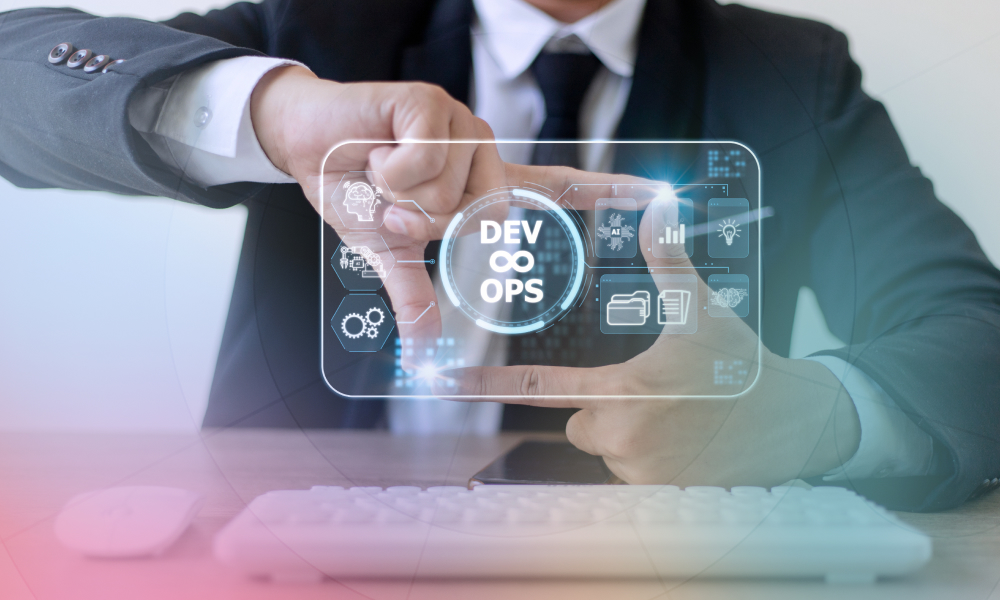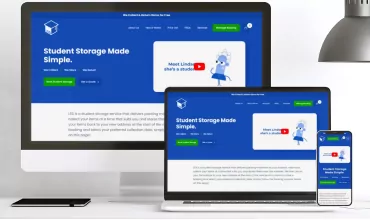Complete Guide On Becoming A DevOps Engineer In 2023

Table of Contents
In this blog, we will thoroughly discuss the needed skill sets and process of becoming a DevOps engineer. We will explore the technologies to know for attaining the DevOps goals along with the roles and responsibilities of a DevOps Engineer.
We will also talk about how to discover DevOps lifecycle phases, DevOps digital transformation process, and why businesses are adopting DevOps technology to upsurge delivery efficiency.
A DevOps engineer is an IT expert who thoroughly understands the software development lifecycle. They must understand why the organization needs to switch models, the disadvantages of the old model, the benefits of the new model, and other pertinent information.
The operation team in a typical organization monitors and maintains the products while the development team creates new ones.
On the other hand, the DevOps engineer fosters collaboration between the development and operations teams, ensuring that applications are delivered to end users continuously.
Phases of the DevOps Model DevOps Engineers Envision
Before knowing how to become a DevOps engineer in detail, we need to explore the different phases of DevOps lifecycle.
1) Continuous Development
Continuous development, the first step in the DevOps lifecycle, includes designing and coding a software application. DevOps engineers take a seat and envision the outcomes or what the software application will look like.
Developers start writing and maintaining the code once the vision is established. These tools include SVN, Git, Jira, and CVS, to name a few.
2) Continuous Integration
Continuous Integration comes after the phase of Continuous Development, and the first phase easily flows into the second. To incorporate the necessary features into the software product, this phase entails several tasks, such as preparing the test execution to be carried out during the testing phase and interpreting the project requirements provided by the customer.
Since it is the stage where potential code issues can be found early on, the Continuous Integration stage is commonly referred to as the “heart” of the larger DevOps lifecycle.
3) Continuous Testing
In the process called “Continuous Testing,” the written code is continually examined for flaws, faults, and defects. Additionally, during this phase, the program’s usability is examined using a set of QA best practices to see whether it meets the client’s requirements.
Automated testing solutions, such as open-source tools like Selenium or sophisticated test management platforms like QARA Enterprise and TestNG, are used to implement continuous testing. With the aid of these tools, the QA team’s DevOps Engineer may run several tests simultaneously, maximizing test efficiency and coverage.
4) Continuous Deployment
Continuous Deployment, the fourth stage of the DevOps lifecycle, comprises providing code without degrading the functionality of the end product or website. It is crucial to ensure that the code is correctly distributed among all servers during this phase. It all comes down to ensuring the product is deployed with the utmost accuracy and with no margin for error.
5) Continuous Monitoring
The fifth step in the DevOps lifecycle, monitoring, involves gathering and evaluating crucial data about the application to identify areas that require additional improvement and broad trends. In this operational phase, which also involves routine performance monitoring, the software program’s operational effectiveness will be improved.
Skill Sets Needed to become a Successful DevOps Engineer
The top talents an ideal DevOps Engineer must possess are discussed in this section:

1) Collaboration and Communication
Given the foundational nature of DevOps, cooperation and communication are essential for DevOps Engineers to succeed. In addition, these two are essential for removing barriers between Dev and Ops teams, coordinating team goals with corporate objectives, and developing a cross-functional DevOps culture.
2) Soft Skills
It won’t work if you’re all good at coding and automation. A new type of individual is needed for DevOps, one who possesses soft skills, self-motivation, flexibility, and an openness to learning. DevOps engineers need to be both doers and listeners.
3) Employing Tools
The toolset utilized during different stages of implementation is the only factor determining if DevOps is successful. Counting the number of tools that DevOps has introduced is challenging. But it’s important to look closely at the significance of DevOps’ success.
4) Security Administration
The risk rate often coincides with the rate of delivery made possible by DevOps. Here, DevSecOps excels at integrating security into the SDLC from the outset. DevSecOps expertise will thus unquestionably aid in your success as a DevOps Engineer.
5) Automation Knowledge
You need a thorough understanding of automation, which is at the core of the DevOps process, to be referred to as a DevOps engineer. A DevOps engineer should be able to automate the entire DevOps pipeline, which includes infrastructure and settings, CI/CD cycles, app performance monitoring, and other elements.
6) Scripting and Coding
Coding and scripting are two essential skills for a DevOps engineer to possess. Programming languages include Python, Ruby, Java, Javascript, PHP, Bash, Shell, and Node. One of the most widely used programming and scripting languages is NodeJS.
7) Testing Abilities
The success of DevOps depends on the testing procedure. The DevOps automation pipeline will need tests that run flawlessly. This is essential for executing automated tests as part of continuous testing.
8) Cloud Skills
DevOps and the cloud go hand in hand. The others and vice versa immediately impact one’s efficiency. The cloud drives the process by providing the necessary infrastructure for testing, deploying, and releasing code, while the DevOps methodology also drives the process.
Best Technologies to know for Attaining DevOps Goals
DevOps engineers employ a range of tools to assist teams in organizing and cooperating to achieve their DevOps objectives. Here are a few of the essential DevOps tools.
- Version control and scheduling tools include Git and Jira.
- Code deployments and build pipelines are created and managed using Jenkins and Docker.
- Unit testing and other testing techniques are performed using JUnit and Selenium.
- PowerShell and Ansible are tools for managing software during the deployment phase.
- Mainly used in production to monitor applications in various environments, including Grafana, Splunk, and Datalog.
Roles and Accountabilities of DevOps Engineer
A DevOps engineer collaborates with the development and operations teams to build and deploy software systems. They must work with software developers, quality assurance specialists, and other IT personnel. The primary duties and roles of a DevOps engineer are as follows:
- Create the server-side feature documentation.
- IT solutions must be created, installed, tested, configured, and maintained.
- Share operational needs and development projections with the entire team.
- Create strategies and procedures for enhancing and extending the utilization of the current technologies.
- Utilizing configuration management software, automatically deploy updates into the production system.
- To ensure the production environment functions properly, do routine application maintenance and troubleshooting steps.
- Gap analyses can help you find ways to improve performance, find alternatives, and support changes.
Key Takeaways
The accomplishment of corporate goals is accelerated via DevOps. As a result, many businesses are adopting the DevOps software development life cycle to increase delivery efficiency.
However, an individual must be knowledgeable about various technologies and procedures before starting a career in DevOps to make informed decisions.
FAQs on DevOps Digital Transformation
What is DevOps, what does DevOps stand for and what does DevOps do?
DevOps is the blend of the words development and operations. The DevOps methodology aims to automate and enhance the process of developing and delivering software.
What common DevOps tools are there?
Ansible, Chef, Docker, Puppet, and Jenkins are a few popular DevOps tools.
What are the problems and their solutions with DevOps implementation?
Organizational silos, a lack of communication and collaboration between the development and operations teams, and resistance to change are common obstacles to implementing DevOps. Providing training on DevOps techniques and deploying DevOps-friendly tools can solve these problems.
How long does it take for becoming a DevOps engineer?
It takes around six months to become a DevOps engineer, given you have fundamental Linux admin and networking skill sets and that you take professional training in DevOps engineering.
What advantages does DevOps offer?
DevOps offers faster software development and delivery cycles, enhanced collaboration and communication between developers and operations employees, which increases the software development process efficiency and effectiveness.



